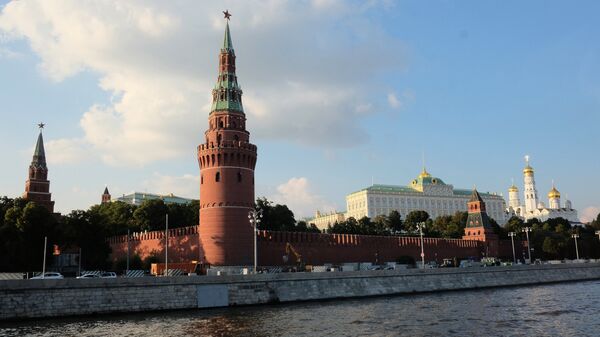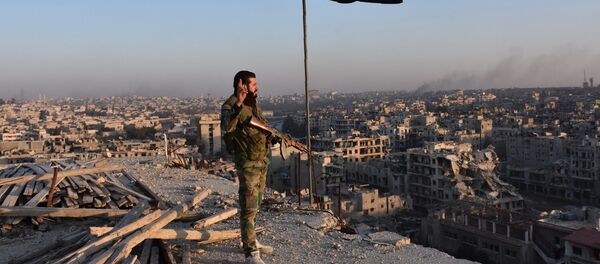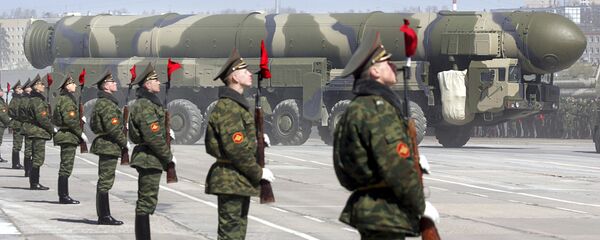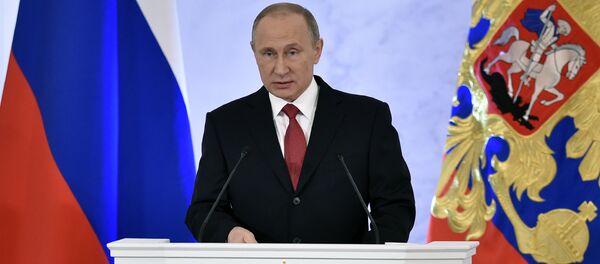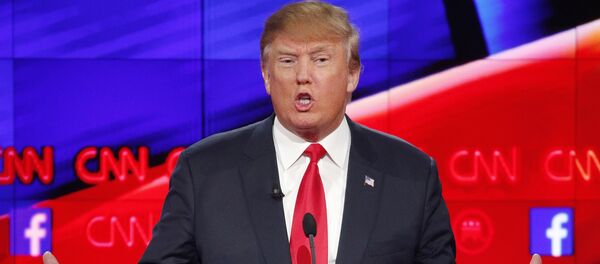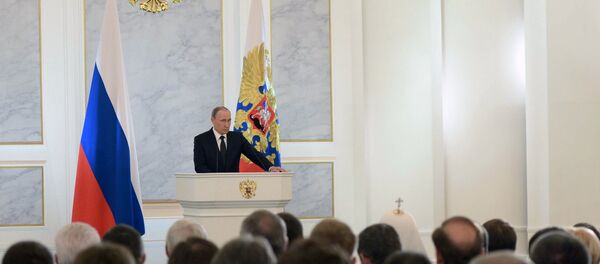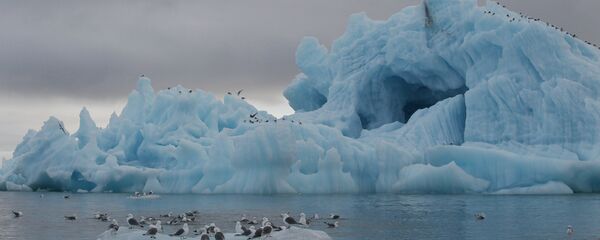Situation in Syria, Middle East and Fight Against Terrorism
Russia's new foreign policy concept calls for the creation of a broad anti-terrorist coalition amid a global terrorist threat posed by Daesh.
"The creation of a broad international anti-terrorist coalition on a solid legal foundation, based on efficient and systematic cooperation, without political maneuvering and double-standard policies…must become a priority [for international community]."
The document also says that Russia stands for the peaceful settlement of the Syrian conflict, the country's territorial integrity, independence and unity.
Russia will continue to stick to the political and diplomatic solution of issues in the Middle East without external interference, the concept stated.
Russia is doing its best to fight against terrorism in accordance with Russian and international laws, according to the document.
Rule of International Law, Arms Control and Nuclear Weapons
Russia considers strict compliance with the international law as a priority of its foreign policy, the concept said. Moscow will withstand any attempts of foreign interference in its internal affairs aimed at unconstitutional power change.
Russia is boosting the process of international and legal formalization of its borders and maritime spaces.
Russia is ready to discuss further stage-by-stage reduction of nuclear potentials, according to the concept.
Russia strictly adheres to international obligations on arms control and calls other countries to do the same. Russia supports the creation of zones free from nuclear weapons and other weapons of mass destruction, especially in the Middle East.
Besides, Russia "strictly follows the policy to strengthen the political and legal foundations of the nonproliferation regime for nuclear weapons, other types of weapons of mass destruction and their delivery systems, with account for the risk of such weapons' components getting into the hands of non-state actors, first of all terrorist organizations," it said.
According to the concept, the threat of a war between major powers is small, but risks of getting dragged into regional conflicts have increased, the document said.
International agreements are needed to prevent an arms race in space, while the states must by obliged not to deploy weapons there, according to the concept.
Relations With US, EU, NATO
Russia expects the US to strictly observe the norms of the international law in its actions on international arena, the document said. Russia is interested in mutually beneficial relations with the US as both Moscow and Washington are responsible for the international security.
Russia does not recognize US attempts to implement its jurisdiction beyond its borders as it contradicts the international law.
"Russia does not recognize does not recognize extraterritorial projection of US jurisdiction outside the framework of the international law, rejects attempts to apply political, military, economic or any other pressure, and reserves the right to respond harshly to unfriendly actions, including through strengthening of national defenses and introduction of mirror or adequate response measures."
NATO's expansion and the alliance's infrastructure near Russia's borders, as well as the buildup of military concern Moscow, according to the document.
"The Russian Federation has a negative attitude toward NATO's expansion and the alliance's military infrastructure approaching the Russian borders, boosting its military activity in regions bordering Russia as toward actions that violate the principle of equal and undivided security."
Russia will build its relations with NATO based on the alliance's readiness to hold an equal dialogue, the new concept underlines.
Russia considers the creation of the US global missile defense as a threat and reserves the right to respond.
"Russia considers the creation of the US global missile defense system as a threat to its national security and reserves the right to take appropriate response measures."
Asia Policy
Russia's and China's stances on global issues coincide; Moscow will continue to boost ties with Beijing, according to the document.
"Russia will keep boosting comprehensive, equal, trusting partnership and strategic interaction with the People's Republic of China, actively developing cooperation with it in all spheres," the document says.
"The Russian Federation will continue its course for building good-neighborly ties and mutually beneficial cooperation with Japan, including with the aim to ensure stability and security in the Asia Pacific region."
Russia calls for the reduction of confrontation and tensions on the Korean Peninsula and for the reconciliation of the sides via a dialogue.
Russia considers strengthening its positions in the Pacific Region as a strategically important direction of foreign policy, according to the document.
"Russia considers the strengthening of its positions in the Asia Pacific region and boosting of relations with regional states as a strategically important direction of its foreign policy, which is conditioned by Russia being part of that dynamically developing geopolitical region."
Arctic
"Russia will strongly counteract any attempts to bring to the Arctic elements of the policy of confrontation, including military, and to politicize international interaction in the region as a whole."
Russia is ready to develop ties with Canada, including in the Arctic, on the basis of respect of interests.
Media
Russia will use modern technologies to strengthen the positions of Russian media abroad and protect its information security.

